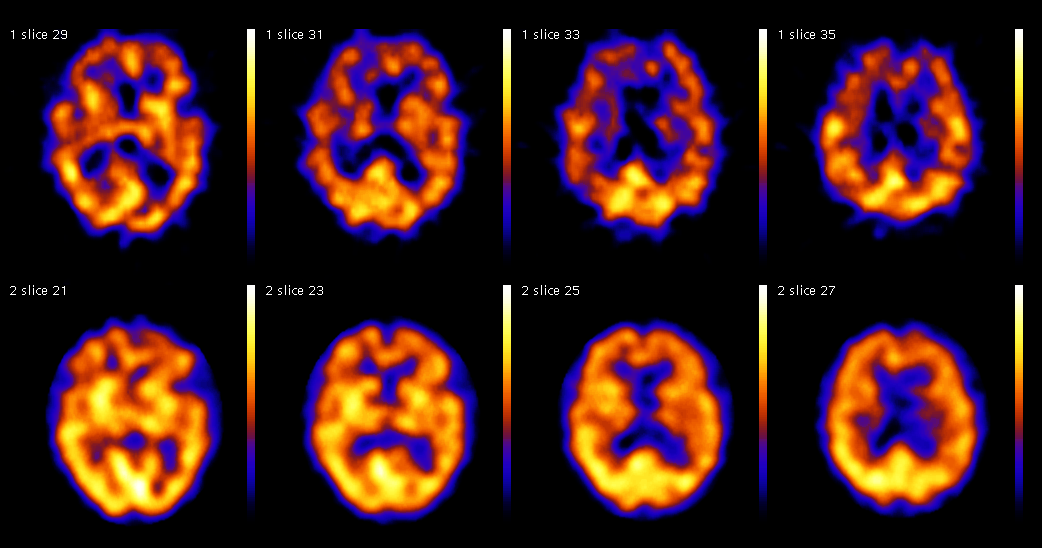
The effect of depression on cerebral blood flow--the top row is the brain of a clinically depressed patient, the bottom row is a normal brain.
Depression does not necessarily have a specific cause. There is such a variety of possible causes or triggers, and the disease affects so many different types of people, that it is impossible to pinpoint them all. Some thinking patterns or social situations within one’s life can trigger depression. One study shows that people are 10 times more likely to develop depression now than in 1945, which indicates that the social changes within our society have something to do with the disease.
Genetics also seem to play an important role—if one has a history of depression in his family, one is more likely to develop depression himself. Women are often afflicted while they undergo physical changes, like puberty, pregnancy, menstrual cycles and menopause, which alter the hormones in the body. Sometimes depression develops after a traumatic incident, such as being molested or the death of a loved one, and sometimes it occurs after giving birth (postpartum depression). Drugs, alcohol, and some medications can also cause depression. But depression often occurs spontaneously, for no reason at all, and can attack individuals who lead very content, successful, and fortunate lives; individuals who have “no reason” to be unhappy. One does not need a reason to suffer from depression.

There are a number of theories as to what clinically causes/occurs during depression, which will be covered in-depth in the Treatment page. All the theories center around two neurotransmitters, specifically monoamine neurotransmitters, that are involved with emotional behavior: serotonin and noradrenaline. Serotonin regulates pain, pleasure, anxiety, panic, sexual stimulation, and sleep-wake patterns; noradrenaline controls the mood and is believed to inhibit and stimulate emotional responses such as anxiety, aggression, stress, and sleep patterns. Depression is believed to occur when there is a deficiency of these neurotransmitters.